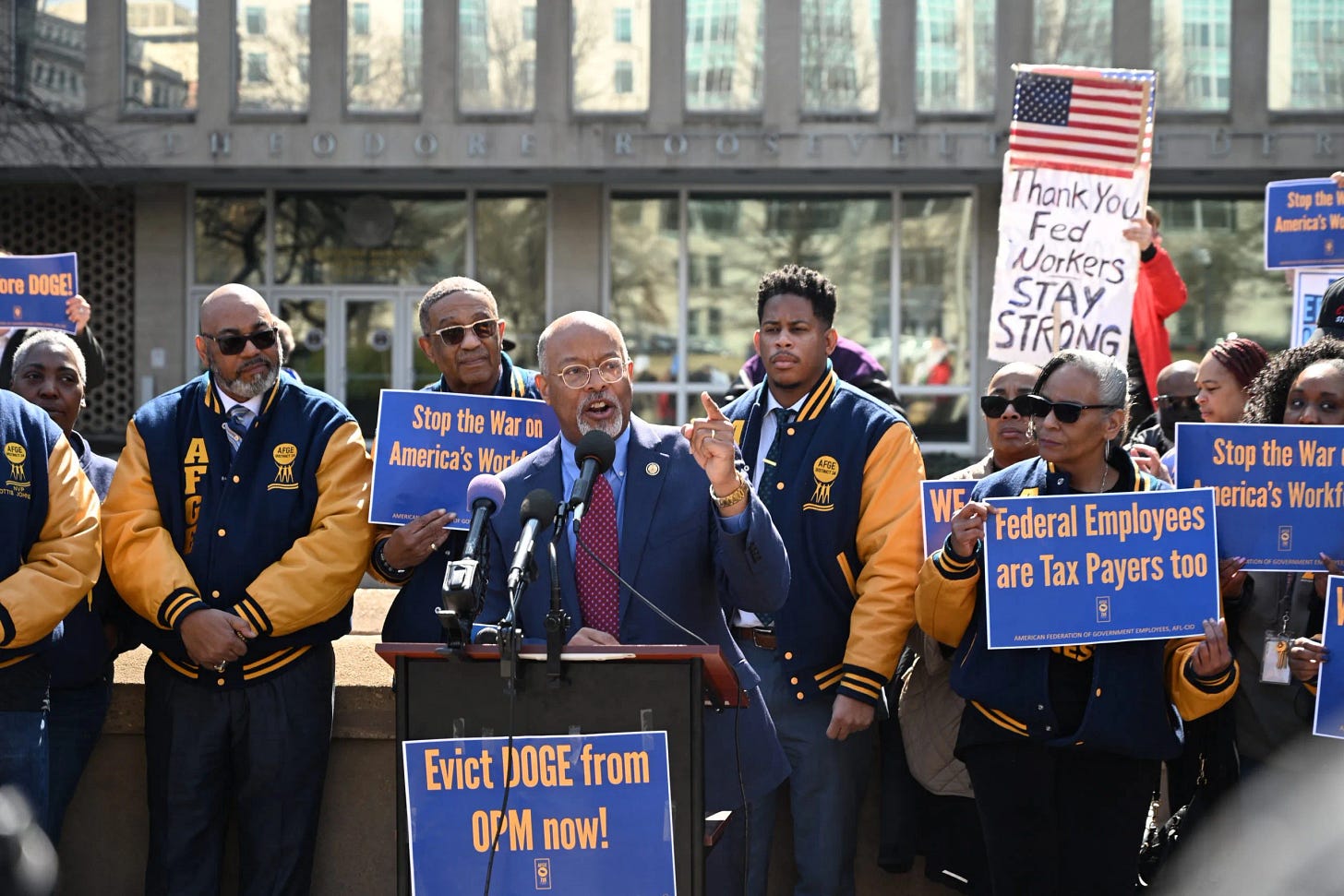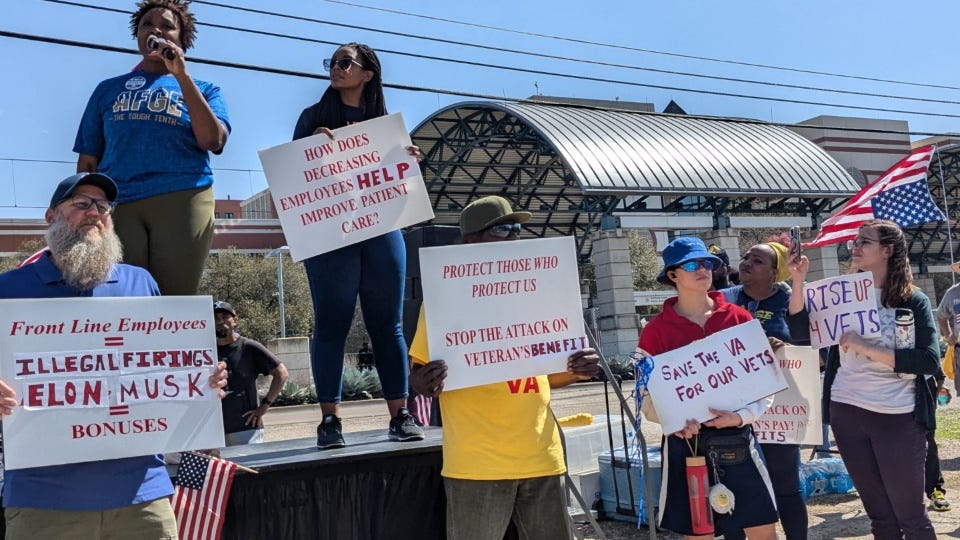Deeper Than Data: Inside the 73% DOE Layoffs That Targeted Black Workers and Gutted Civil Rights
Sheria Smith, president of AFGE Local 252, opens up to 13th & South on how the agency’s mass layoffs disproportionately impacted Black and women employees.

On March 11th, over 1,300 employees at the U.S. Department of Education, nearly 1,000 represented by the AFGE Local 252 union, opened their email inboxes to find that they were being laid off, effective immediately.
The employees received no warning, time to prepare, or justification — other than a sweeping reduction directive citing “risk” and “presidential orders.” That same group accounted for over 73% of the Department of Education’s roughly 1,300 total cuts.
“I’ve been grappling with whether this is unprecedented or if it's Reconstruction all over again,” Sheria Smith, a civil rights attorney for the agency and president of AFGE Local 252, told 13th & South.
“The moment the federal government stopped protecting its vulnerable populations before — look what happened. And we’re seeing it again.”
Smith knows because she’s lived it. She was one of the many DOE employees laid off.
Since 2019, Smith has worked in the Dallas Office for Civil Rights (OCR) — the busiest in the country — handling discrimination cases in Texas, Louisiana, and Mississippi. “We carried the complaints of Black families,” she says, “who watched their kids get shut out of AP classes, mislabeled as special needs, or worse — restrained and handcuffed because of a disability.”
Now, many of the employees in that office, and dozens more — are gone.
A Disturbing Revelation Behind the Numbers
Data provided by AFGE Local 252 shows that among the 964 employees the union represents, Black employees, women, and workers over the age of 40 were hit the hardest.
Black workers: 374 (38.8% of layoffs)
Women: 653 (67.7%)
Age 40 and older: (73%)
Black employees, who comprise nearly 19% of the overall federal workforce, were overrepresented in the AFGE Local 252 union’s layoffs. In agencies like the DOE, where civil rights oversight is critical, Smith said this hit is not only unconstitutional —but feels deliberate.
“It’s interesting they eliminated certain people but kept others in the same roles,” she says. “We can’t ignore who was targeted — and who was spared.”
In Dallas, the very office overseeing Texas, Mississippi, and Louisiana civil rights cases — the majority of the Black leadership and staff were gutted.
“That office covered some of the most egregious Title VI race-based discrimination complaints in the country,” Smith said. “Now the remaining employees not only have to take on the cases in their own office, but now they will inherit dockets of cases from closed offices.”
The Damage Is Done — And May Only Worsen
Historically, federal employment created a pathway to the middle class for Black families, especially in Southern cities like Texas, Georgia, and Louisiana. The DOE, postal service, USAID — these weren’t just jobs. They were lifelines that have now largely been severed.

Smith and the AFGE union have been on the frontlines working to help get employees reinstated and challenging the layoffs. Some courts have ordered reinstatement, but the administration has been slow to comply. In fact, President Trump has petitioned the Supreme Court to block those rulings. Smith says many of her union members have not been called back.
“A lot of harm has been done already,” she added. “And this administration’s actions will require people to spend lots of resources and time just to get them to do the right thing.”
And the danger, she says, isn’t just the layoffs — but also the erasure of memory.
“We can’t let anyone forget this happened,” Sheria urged. “That’s what got us here — comfort, complacency, forgetting our own history. This isn’t unprecedented. This is the playbook after Reconstruction. We’re just living it again.”
What Comes Next? A Call from the South
As the legal battles merge on, Smith says that Black communities — especially in the South — must prepare for a new fight.
“It’s time to pool resources, combine households if we have to, and rethink where we live, where we send our kids to school,” she said. “Without federal oversight, we’re going to have to protect ourselves. Find the schools where leadership sees your child as their own. That’s how we will survive this.”
But survival, she says, isn’t enough. Documentation, memory, and speaking the truth are also required. Because what’s happening isn’t new. But what we do next can be.
“We don’t touch this fire just to burn,” Smith says. “We touch it so no one behind us has to.”
13 & South is a new publication covering news, investigative stories, and insights on social justice, policy, and systemic inequities impacting Southern Black communities. I value your stories, insights, and feedback and invite your perspectives to contribute to future issues. Please feel free to contact me here or follow me on my socials! LinkedIn, Twitter, IG, BlueSky, and Threads.


I really appreciate the next steps that Sheria Smith provided. That's necessary because the constant sense of being angry and not using that anger to strategize won't get us anywhere, especially after she is clearly stating that we've been here before. Our ancestors gave us a blueprint. Let's move on it.
They trying to get us back in those fields